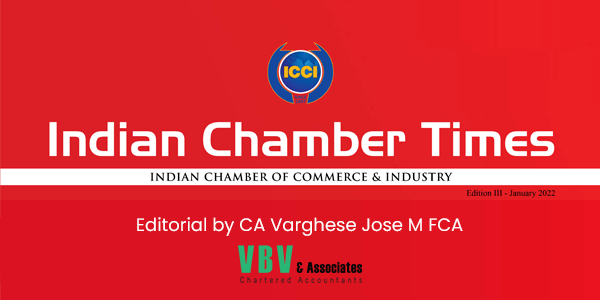ITC Credit Blocking – Hardships to Genuine Taxpayers to be Alleviated
The Union Ministry of Finance has revealed some shocking data regarding the blocking of Input Tax Credit in the nation. Input Tax Credit (ITC) refers to the tax already paid by a person at the time of purchase of goods or services and which is available as a deduction from tax payable. Under the GST Regime, ITC can be claimed by every registered taxable person on all inputs used or intended to be used.
The introduction of GST seems to have put the taxpayers of the country as well as the state governments in a complicated situation. The implementation of a new law or policy can turn out to be beneficial and detrimental at the same time. This article discusses what is Rule 86 A and its consequent ramifications.
During September this year, revenues collected for goods and services tax (GST) touched a five-month high at Rs1.17 lakh crore, says the Union ministry of finance. However, a whopping Rs.6.14 lakh crore as input tax credit (ITC) remains blocked under Rule 86A by the tax authorities. Out of this, just Rs1,370.71 crore was unblocked after one year, reveals information obtained under the Right to Information (RTI) Act.
GST paid on purchases is available to be taken immediately as credit and offset with liability on sales. GST allows this on a self-assessment basis. In certain exceptional situations, the commissioner of GST has powers to block credit even before any due process of law is taken against questionable credits.
In December 2019, the Union government introduced Rule 86A vide notification no. 75/2019 to block fraudulently availed ITC. As per the rule, a commissioner or any officer authorised by him can block the ITC available in the electronic credit ledger of the taxpayer if he has reason to believe that the taxpayer has fraudulently availed ITC.
The amount of ITC pertaining to a period exceeding one year from the date of blocking such ITC under Rule 86A of the CGST Rules is Rs.296311.45 (Rs2.96 lakh crore).”According to the CPIO (Centre Public Information Officers) of GSTN, about 2,228 taxpayers for whom ITC worth Rs1,370.71 crore has been unblocked after one year has passed from the date of blocking such ITC.
The information provided by GSTN shows that Uttar Pradesh (UP) has a maximum amount of Rs5.82 lakh crore ITC blocked from 10,174 taxpayers. Delhi has the maximum number of taxpayers at 13,539, whose Rs5,744.75 crore is blocked under Rule 86A towards ITC. The total revenues of the Union and the states after regular settlements during September 2021 is Rs 49,390 crore for CGST and Rs50,907 crore for the SGST. Claiming ITC for discharge of the output tax liability is a legal right of the taxpayer. ITC can be blocked only through specific powers of the law. Unfortunately, credits blocked under this rule remain blocked only for one year but then notice or other proceeding needs to be initiated or unblocked.
When the credit is blocked, taxpayers who would have paid GST to their suppliers are left to bear their output liability in cash without utilising valid credits because it is blocked. The main question here is who is responsible for blocking credits for ITC for such a tremendous amount under Rule 86A?.
Unblocking the ITC credit will give much reprieve to state governments as well. Of the total amount of Rs 6.14 lakh crore blocked, UP alone contributes Rs5.8 lakh crore and Kerala’s share is Rs.184.36 crores. The burden falls on the taxpayer of having to pay the liability in cash along with interest even when ITC is available to him but blocked due to the charge of incorrect availment.
The GSTN has clarified that the above data is incorrect and the refunds blocked are much lesser but the question remains how the above RTI reply was furnished. Whichever be the numbers and even though the CBIC has initiated certain steps through circulars and field level interventions, it would be in the genuine interest of the tax payer, necessary steps for release of GST credit for genuine cases is expedited.
 English
English






